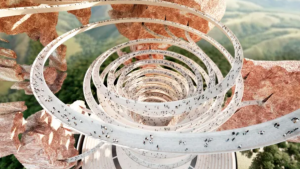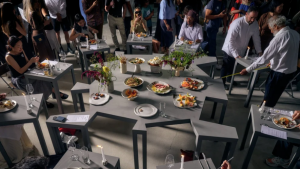
Mikael Owunna is a Nigerian-American photographer and writer whose photographic series Limit(less) is a documentation of the ways in which LGBTQ Africans in the diaspora are using visual aesthetics to navigate their cultural, sexual and gender identities. Through interviews and photographs, Owunna has compiled a visual record of how first and second generation African immigrants in Europe and the United States are exploring both their African and LGBTQ identities through style.
In a conversation with Okay Africa in 2016, Owunna explained how the project began. After returning to the US from Taiwan where he had been on a Fulbright scholarship, a friend dragged him to the Carnegie Museum of Arts. It was there that he first encountered South African photographer Zanele Muholi’s work, and her portrait series, Faces and Phases stopped him in his tracks.
“Seeing that work resonated with me on a level I had never felt before,” he says. “I decided to begin researching and launch my own photography project exploring the lives of LGBTQ Africans in diaspora.”



Owunna’s work is focused on removing the limitations of pervasive anti-LGBTQ sentiments by providing a platform for queer individuals in the African diaspora to fully express themselves. Limit(less) is an ongoing project for Owunna, one that represents the radical dismissal of an unspoken binary that states one cannot be both LGBTQ and African.
Featuring the images and stories of queer individuals descended from all corners of the continent, Owunna’s candid, colourful pictures are a marked departure from the trauma-laden imagery that has become synonymous with representation of the LGBTQ community. Limit(less) instead focuses on joy, style, and, most importantly, agency.
“I am personally bored with depicting stereotypical one-dimensional narratives of pain for the white gaze,” he candidly told Okay Africa. “Yes, we face terrible homophobia and transphobia both inside and out of African immigrant communities, but our lives are multidimensional and we are still people. We still laugh, experience joy, love and more. We find ways to express ourselves and live out full lives as LGBTQ Africans despite these ostensible “limits” on our existence, and our visual aesthetics can be a key part of that.”









